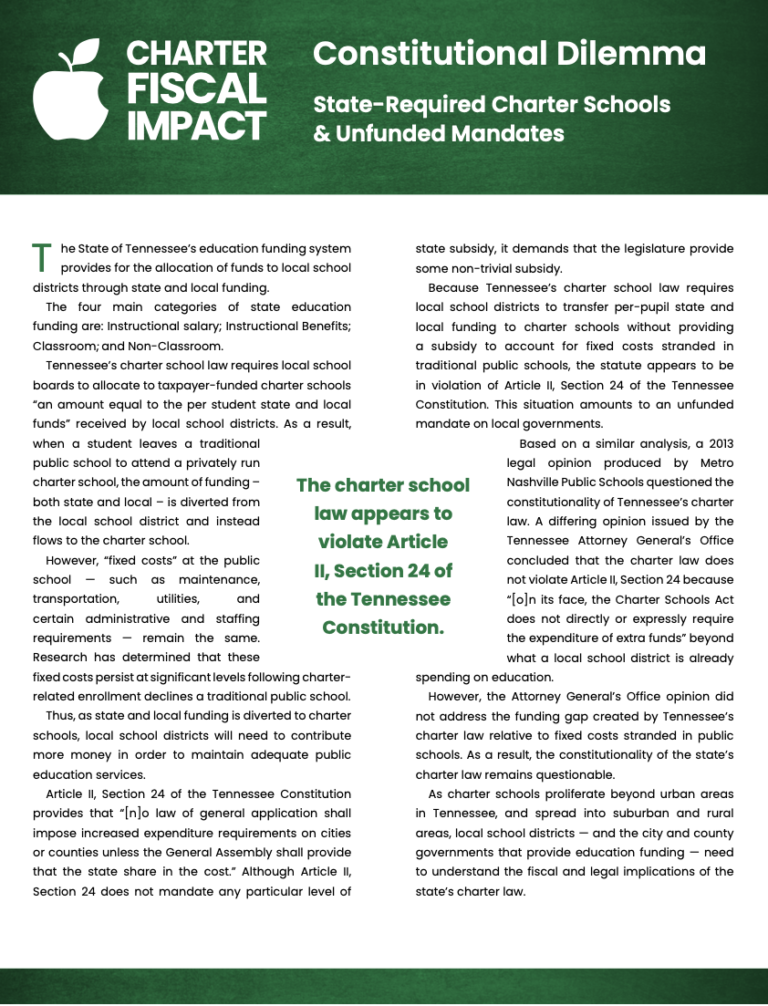Constitutional Dilemma: State-Required Charter Schools & Unfunded Mandates
Because Tennessee’s charter school law requires local school districts to transfer per-pupil state and local funding to charter schools without providing a subsidy to account for fixed costs stranded in traditional public schools, the statute appears to violate the Tennessee Constitution.
Article II, Section 24 of the Tennessee Constitution provides that “[n]o law of general application shall impose increased expenditure requirements on cities or counties unless the General Assembly shall provide that the state share in the cost.”
Because Tennessee’s charter school law requires local school districts to transfer per-pupil state and local funding to charter schools without providing a subsidy to account for fixed costs stranded in traditional public schools, the statute appears to violate the Tennessee Constitution.

